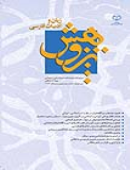اهميت جاحظ و ديدگاههاي او در نقد و ادب اسلامي ـ ايراني
محورهای موضوعی : پژوهشهای ادبیات کلاسیک ایران
1 -
کلید واژه: جاحظ رويكرد بلاغي فرهنگ ايراني ـ اسلامي نقد ادبي ,
چکیده مقاله :
بيترديد، در ميان بينانگذاران فرهنگ و ادب اسلامي، جاحظ چهرهاي ممتاز است. حوزة وسيع اطلاعات، ژرفاي دانش و به ويژه نگاه خاص به ادبيات و فنون ادبي از او شخصيتي كم نظير ساخته است. او علاوه بر زمينههاي عام دانش و تسلط بر غالب علوم اسلامي و ادبي، در حوزه نقد ادبي و به ويژه در حوزة نقد بلاغي جايگاه ويژهاي دارد. اگر چه چنان كه بايد در تمدن اسلامي و خصوصاً دنياي فارسي زبان، به آراء و آثار او توجه نشده است؛ امّا اكثر نظريهپردازان علوم بلاغي و شاعران و نويسندگاني كه گرايشهاي بلاغي دارند، عميقاً متأثر از نظريات جاحظ هستند. او در حوزة خاستگاه شعر و علل ظهور آن، ويژگيهاي سخن و شعر خوب، تمايزات لفظ و معنا و ويژگيهاي ساخت، بافت و محتوا، روانشناسي شعر و شاعر، دلايل تفاوت رويكردهاي ملتها به سخن منظوم و منثور و عدم اقبال پارهاي از آنها به فرهنگ مكتوب، سخناني تازه و قابل تحليل دارد؛ چنان كه در زمينه ريشهشناسي لغات، آواشناسي تطبيقي، معناشناسي و نظاير آنها نيز نكتههاي فراواني گفته است كه درك و تفسير آنها جان و تواني تازه به ادبيات فارسي و نظريهپردازان جهان اسلام ميبخشد. وي اگر چه بيش از 360 اثر آفريده است، ولي عمده نظريههاي ادبي خود را در دو كتاب «البيان و التبيين» و «الحيوان» گنجانده و برخي رسالههاي مستقل ادبي هم نگاشته است. هدف اين مقاله تبيين دو نكته عمده است: اول بررسي، طبقهبندي، تفسير و تحليل آراء و آثار جاحظ در بارة ادبيات و نقد ادبي و بيان جايگاه او به عنوان پدر علوم بلاغي. دوم تأكيد بر تأثير عظيم و عميق جاحظ بر متفكران ايراني به خصوص شاعران و نويسندگان آن و بالاخص در حيطه نقد ادبي و رويكرد بلاغي آن. چون نويسنده معتقد است كه مهمترين رويكرد نقد ادبي در زبان و ادب فارسي، رويكرد بلاغي بوده است و جاحظ «موسس علوم بلاغي» در جهان ايراني ـ اسلامي است.
Undoubtedly, Jahez is a prominent and unique figure among the founders of Islamic culture and literature. His extensive information, deep knowledge and special attitude toward literature and its arts resulted in his prominent personality. In addition to his general knowledge and command of literature and Islamic sciences, he is unique figure in literature criticism, especially in rhetoric criticism. Although much attentions have not been paid to his works and ideas in Islamic civilization and especially in Farsi language environment, most of the theoreticians of the rhetoric and poets and writers interested in rhetoric have been considerably affected by Jahez’s ideas. He has some new and considerable ideas in the areas of the origins of poetry and the reasons of its emergence, the characteristics of good poetry and speeches, the distinction of meaning and speech and the features of structure and content and context, the psychology of poetry and poems, the reasons for nations’ different approaches toward poetry and prose and nonexistence of some in forms of writing. He has some new numerous ideas upon etymology, comparative phonetics, semantics and the likes whose understanding and interpretation give a new life to the Persian literature and Islam theoreticians. Although he has created more than 360 works, his literature related ideas have been stipulated in his two books of “Albayan o Altabyeen” and “Alhayvan” and he also has created some independent literature theses. This article is aimed at revealing two points: first, analyzing, interpreting, classifying and studying Jahez’s literature and criticism works and expressing his status as the founder of rhetoric sciences. Second, the deep and extensive impact of Jahez on Iranian thinkers especially its writers and poets and literature criticism and rhetoric approaches because the writer believes that rhetoric approach has been the most important literature criticism in Persian language and literature and Jahez is the founder of rhetoric sciences in Iran – Islam world.


